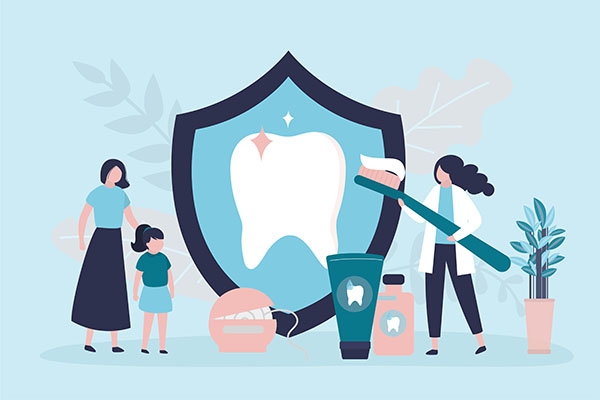 Your pediatric dentist can clear the air when it comes to plaque and tartar. As a responsible parent, you should ask your child’s dentist about the most common dental problems — plaque and tartar. Dental health starts in early childhood. It is always prudent to do what you can to prevent these substances from taking over your child’s mouth. Here are the answers that a pediatric dentist can give about plaque and tartar.
Your pediatric dentist can clear the air when it comes to plaque and tartar. As a responsible parent, you should ask your child’s dentist about the most common dental problems — plaque and tartar. Dental health starts in early childhood. It is always prudent to do what you can to prevent these substances from taking over your child’s mouth. Here are the answers that a pediatric dentist can give about plaque and tartar.
What is plaque?
Plaque is invisible to the untrained eye. It looks like thick and white deposits of food. Plaque is sticky and consists of countless bacteria. To a pediatric dentist, this is a substance that coats each tooth even at a young age. Children are more prone to plaque. Kids love to eat sources of carbohydrates like candies.
Is plaque harmful?
Each time children eat sugars, the food particles in the child’s mouth feed the bacteria in there. Bacteria reproduce and increase in number. This leads to plaque formation. Plaque coats the teeth as a collection of bacteria. It excretes acids, corroding the layers of the teeth. Plaque can cause a dark smudge along the gumline, gingivitis, and periodontitis.
What is tartar?
Some know this as dental calculus. This is hardened plaque. Tartar can form along the gumline. It irritates the gum tissues. Tartar helps even more plaque to form by providing more surface area. It also gives plaque a stickier surface.
How can parents tell if their child has tartar buildup?
Tartar is easier to see than plaque. It is thicker and more distinct to detect above the gumline. The color is brown or yellow. A pediatric dentist will detect the tartar in the child’s teeth and remove it with a special tool.
Can parents prevent tartar buildup?
This is possible through proper brushing using a tartar control toothpaste. Flossing is also helpful in reducing the buildup of plaque and tartar. Yet, once tartar has formed, only the pediatric dentist can remove it. The dentist will use a scaler to remove the tartar.
Is it possible for a child to have a plaqueless set of teeth?
A pediatric dentist disagrees that a child can have a plaqueless set of teeth. Everyone has bacteria inside the mouth. These organisms always feed on the food particles inside the mouth. It is normal for kids or adults to have plaque. It is important to remove plaque daily through proper brushing and flossing.
How can parents make their child’s diet beneficial for teeth?
Encouraging children to eat a balanced diet can help maintain dental health. A limit on starches and sugary foods can also help protect children from decay. It may be difficult at first, but it is possible. The pediatric dentist can help parents create a list of teeth-friendly foods for kids.
A pediatric dentist can help improve your child’s dental health
Learning about plaque and tartar from your pediatric dentist can help you understand how to prevent them from building up. Early dental care at home affects your child’s oral health and general health. It goes to show that prompting your child to brush and floss daily has its rewards. A regular appointment with your pediatric dentist can help kickstart your child’s dental health practices.
Request an appointment or call Precision Orthodontics & Pediatric Dentistry at 703-391-8800 for an appointment in our Reston office.
Recent Posts
Fluoridated water is part of pediatric dentistry. It is a convenient and easy way to strengthen and protect teeth at an early age. Many areas have fluoridated water, which is a definite advantage. If you want to know why a dentist will likely recommend fluoridated water, here are the details.Studies show that almost all sources…
The right time to schedule a pediatric dentistry appointment for your child can vary based on a variety of factors. Routine professional cleanings and checkups are an essential part of good oral health for patients of all ages, including babies and children. You may be surprised to find out just how early the American Dental…
Dental crowns are important in pediatric dentistry. Each primary tooth is a living guide for the development of permanent teeth. But baby teeth can also suffer from decay. So restoring these teeth is important for the general health of your child. If you want to know if pediatric dentistry uses dental crowns, here are the…


